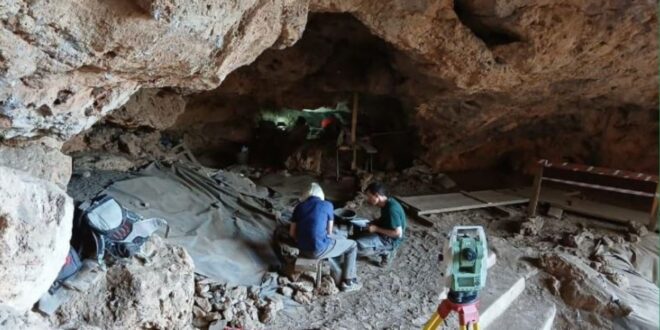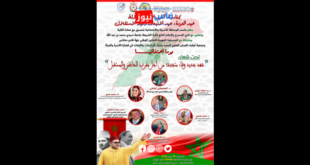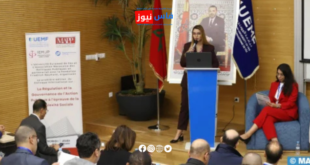The National Institute of Archaeology and Heritage announced today, Monday, November 4, 2024, a remarkable discovery that sheds light on the medical history of humanity. An international team has found evidence of the use of medicinal herbs in the Hammam Cave in Tafoughalt, dating back 15,000 years.
This achievement has been published in the prestigious scientific journal Nature, highlighting the significant importance of this discovery in understanding the deep-rooted history of human civilization.
The discovered herbs, particularly the “Ephedra” plant, form the cornerstone of this research. Its fruits were found in a specific area of the cave, which was used for burial according to special funerary rituals. Studies indicate that human communities during that period relied on these herbs for therapeutic purposes, including treating colds and reducing bleeding.
This discovery enhances our understanding of ancient healing practices and underscores the ingenuity of our ancestors in utilizing natural resources.
It demonstrates that humans 15,000 years ago possessed detailed knowledge of how to benefit from plants, challenging prevailing notions about the medical capabilities of prehistoric people.
Previous research conducted in the same cave has revealed evidence of the oldest known surgical procedure, where traces of surgery on a human skull were found, indicating that the individual who underwent the procedure lived and endured their pain thanks to those herbs.
Studies have shown that this surgery was performed with advanced techniques, suggesting a high level of medical knowledge.
The scientific team comprises distinguished researchers, including Ismail Ziyani, a PhD student at the University of Las Palmas, along with several scholars from prestigious academic institutions, reflecting international collaboration in archaeological research.
This discovery is more than just an archaeological finding; it provides a deeper understanding of human capabilities in using herbs for medicine, reshaping our perspectives on ancestral practices. Understanding how these people lived in harmony with nature and innovated ways to treat diseases reflects humanity’s adaptability and creativity.
In conclusion, this discovery underscores the importance of archaeological research in illuminating the past of humanity and enhances Morocco’s standing as a cradle of human civilization.
source : fesnews media
 فاس نيوز ميديا جريدة الكترونية جهوية تعنى بشؤون و أخبار جهة فاس مكناس – متجددة على مدار الساعة
فاس نيوز ميديا جريدة الكترونية جهوية تعنى بشؤون و أخبار جهة فاس مكناس – متجددة على مدار الساعة













